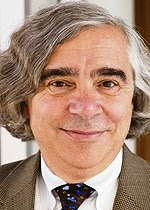Sec. Moniz to Georgia, Energy Department Scheduled to Close on Loan Guarantees to Construct New Nuclear Power Plant Reactors
 |
| Ernest Moniz |
 |
| Vogtle Plant Construction Area |
Project partners include Georgia Power Company (GPC), Oglethorpe Power Corporation (OPC), the Municipal Electric Authority of Georgia (MEAG), and the City of Dalton, Georgia (Dalton).
Department made conditional commitments for a total of $8.33 billion in loan guarantees. Tomorrow, the Department is scheduled to issue loan guarantees to GPC and OPC for a total of approximately $6.5 billion. The Department continues to work on the remaining conditional commitment for a $1.8 billion loan guarantee to MEAG.
The Energy Policy Act of 2005 authorized the Department to issue loan guarantees for projects that avoid, reduce or sequester greenhouse gases and employ new or significantly-improved technologies as compared to technologies in service in the United States at the time the guarantee is issued.
The nuclear facility is eligible for loan guarantees since it is expected to avoid nearly 10 million metric tons of carbon dioxide emissions annually, which is the equivalent of removing more than two million vehicles from the roads. In addition, the Westinghouse AP1000® reactor has incorporated numerous innovations resulting in significant operational and safety improvements.
Currently, the Department’s Loan Programs Office (LPO) supports a large, diverse portfolio of more than $30 billion in loans, loan guarantees, and commitments, supporting more than 30 closed and committed projects. The projects that LPO has supported include one of the world’s largest wind farms; several of the world’s largest solar generation and thermal energy storage systems; and more than a dozen new or retooled auto manufacturing plants across the country. (DOE)



